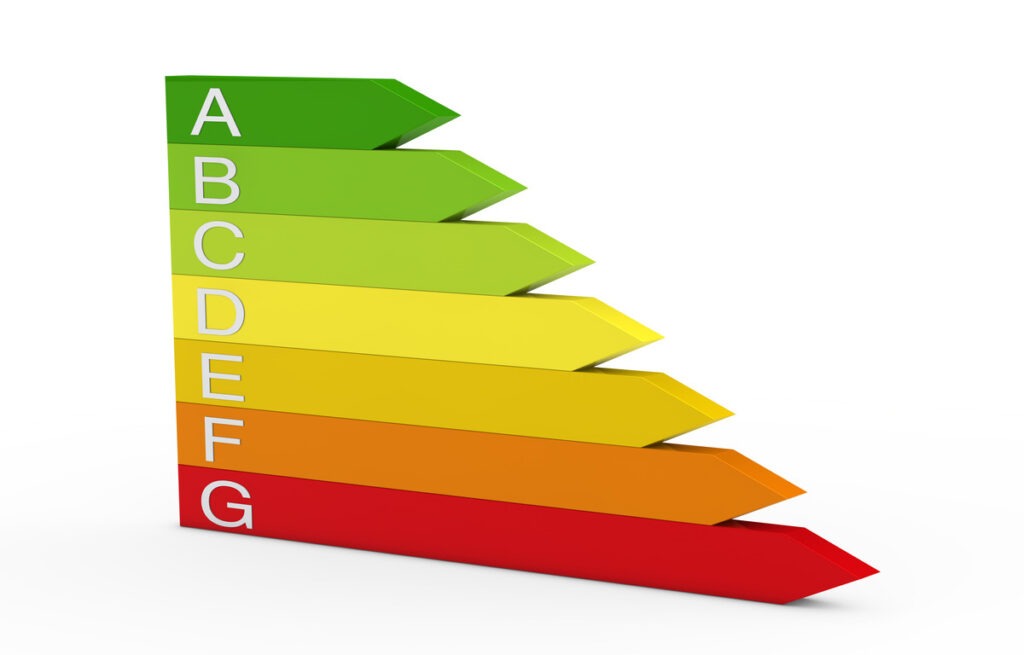How UK Energy Regulations Affect Commercial Solar Panel Installations
UK energy regulations play a critical role in shaping the path businesses take toward sustainability, especially when it comes to commercial solar panel installations. As energy policies evolve to support the country’s net-zero goals, they directly influence how companies plan, finance, and benefit from solar energy systems.
For businesses in the UK, understanding these regulatory frameworks isn’t just helpful; it’s essential for making informed decisions that align with both environmental goals and financial incentives.
What Are UK Energy Regulations?
UK energy regulations are a collection of policies, standards, and laws designed to ensure the responsible production, distribution, and consumption of energy. A significant focus of these regulations is to promote renewable energy, reduce carbon emissions, and increase energy efficiency across industries.
For businesses, these rules aren’t just about compliance; they’re opportunities to invent new technologies, save money, and contribute to a greener future.

Key UK Energy Regulations Impacting Commercial Solar Panels
Renewable Energy Guarantees of Origin (REGO)
The REGO scheme provides transparency about the origin of electricity supplied to consumers. When a business uses solar panels, the energy they produce can be certified as renewable under REGO.
This not only strengthens a company's green credentials but also demonstrates its commitment to sustainability to customers and stakeholders. For organisations seeking to demonstrate their green credentials, the REGO certification can be a valuable asset, particularly in competitive markets where sustainability is a key differentiator.
Feed-in Tariffs (FiT)
For years, the Feed-in Tariff (FiT) scheme played a pivotal role in transforming the UK's renewable energy landscape. It helped thousands of businesses and households offset costs by rewarding them for generating and exporting low-carbon electricity, most commonly through the use of solar panels.
But in 2019, the FiT scheme closed its doors to new applicants. While those already enrolled still benefit from payments for up to 20 years, the question now is: what’s next for businesses looking to make the switch to solar?
That’s where the Smart Export Guarantee (SEG) comes in.
What Is the Smart Export Guarantee (SEG)?
The Smart Export Guarantee is the UK government’s follow-up to the Feed-in Tariff. It’s a more modern, market-driven scheme designed to ensure businesses and homeowners are still rewarded for exporting excess electricity back to the grid.
Unlike FiT, where rates are fixed and centrally controlled, SEG allows electricity suppliers to set their own tariffs, creating a more competitive environment and providing better long-term value for energy producers.
How SEG Benefits Businesses Installing Solar Panels
For companies considering solar installations, SEG payments provide a clear, financially attractive route to amplify return on investment.
Here’s how it works:
You generate electricity using renewable technologies such as solar panels.
You utilise what you need to power your operations, thereby reducing your reliance on traditional grid electricity.
You export the surplus energy to the National Grid and get paid for every unit.
While SEG payments are usually lower than the original FiT rates, the ability to shop around for the best export tariffs gives businesses more control. Suppliers must offer at least one SEG-compliant tariff; some also provide premium rates as part of their green energy packages.

Key Differences Between FiT and SEG
The transition from FiT to SEG brought some significant changes:
No generation payments:
Unlike FiT, SEG pays only for exported electricity, not for what you generate and consume onsite.
Supplier-led rates:
With FiT, the government sets the payment structure. SEG allows energy suppliers to set rates, making it essential for businesses to compare offers.
Export tracking:
To qualify, you need a smart meter or export meter that accurately tracks the energy you send to the grid.
No tax-free promise:
Unlike FiT payments, SEG payments may be considered taxable income for businesses, depending on your accounting practices.
Why SEG Still Makes Solar a Smart Move
Despite the changes, SEG keeps solar investment financially viable. Lower upfront costs for solar technology, combined with rising energy prices and growing corporate responsibility to reduce carbon emissions, make solar panels a strong long-term solution. SEG adds an extra layer of financial benefit by turning excess electricity into a source of passive income.
When considering the installation of commercial solar panels, it’s crucial to stay informed about evolving government schemes, such as the SEG. For more details on how solar panels can benefit your business, visit our Commercial Solar Panels page.
Even without the original Feed-in Tariff, UK businesses still have powerful reasons to go solar, and SEG makes the case that much stronger.
Carbon Reduction Commitment (CRC)
The Carbon Reduction Commitment (CRC) was a UK scheme designed to reduce emissions in large, non-energy-intensive organisations that used over 6,000 MWh of electricity annually. It required businesses to monitor energy use, report emissions, and purchase carbon allowances. Following the 2018–2019 compliance year, the scheme was closed and replaced by more streamlined measures better suited to the modern energy landscape.
What Replaced CRC?
With CRC retired, its responsibilities and objectives have been integrated into more modern and comprehensive frameworks, namely the Streamlined Energy and Carbon Reporting (SECR) framework and adjustments to the Climate Change Levy (CCL).

Streamlined Energy and Carbon Reporting (SECR)
The SECR framework was launched in April 2019 to simplify and broaden corporate carbon reporting. Unlike the CRC, SECR focuses on transparency and public accountability rather than carbon trading. Under SECR:
Large UK companies (those meeting two of the following: £36m+ turnover, £18m+ balance sheet, or 250+ employees) are required to report their energy use, emissions, and energy efficiency actions annually.
The reporting is included as part of the company's annual financial filings, bringing carbon data into the mainstream of business performance metrics.
SECR applies to both quoted and large unquoted companies, as well as limited liability partnerships (LLPs), making it more inclusive than CRC.
SECR encourages organisations to take active steps in energy efficiency, not just to meet regulatory obligations but to improve operational performance and reduce long-term costs.
Climate Change Levy (CCL)
The CCL is a tax on the energy businesses use, designed to encourage reductions in energy consumption and increase the uptake of renewable sources. It remains a component of the UK’s energy tax system, impacting businesses and organisations that consume gas and electricity. With the closure of CRC, the CCL rate increased to compensate for the removal of the previous CRC allowance payments.
While the levy adds to the cost of energy, businesses that implement low-carbon solutions, such as solar panels, can mitigate these expenses.
Climate Change Agreement (CCA)
A Climate Change Agreement (CCA) is a voluntary UK scheme that provides businesses with a strong incentive to improve energy efficiency and reduce carbon emissions. By committing to set energy-saving or carbon reduction targets, companies can receive substantial discounts on the Climate Change Levy (CCL), a tax on energy use.
This not only helps reduce operational costs but also encourages greater investment in renewable energy, supporting long-term sustainability goals.
The Strategic Role of Solar Energy in the Post-CRC Era
In this regulatory environment, solar panels offer a clear and actionable solution. By generating clean energy onsite, businesses not only reduce their electricity bills but also demonstrate a proactive approach to carbon reduction, a vital component of both SECR compliance and broader sustainability strategies.
Staying ahead of these evolving requirements is essential. When installing commercial solar panels, it’s crucial to stay up to date with UK Energy Regulations. For more details on how solar panels can benefit your business, visit our Commercial Solar Panels page.
By integrating renewable energy solutions and aligning with frameworks like SECR, businesses can ensure compliance, mitigate rising energy costs, and make meaningful progress toward their environmental goals.
Energy Efficiency Regulations
Commercial properties in the UK are subject to Minimum Energy Efficiency Standards (MEES), which require buildings to meet an EPC (Energy Performance Certificate) rating threshold. Solar panels can significantly improve a building’s energy rating, helping businesses remain compliant and avoid penalties.
Moreover, incorporating solar energy into property developments or retrofits is an effective strategy to future-proof operations against tightening energy efficiency requirements.

How These Regulations Make Solar Panels More Viable
By aligning with UK energy regulations, businesses can access various financial and operational benefits that make solar panel installations more attractive and cost-effective.
Subsidies, tax reliefs, and energy savings are just a few of the advantages. Regulations like REGO and SECR also provide an opportunity to raise brand reputation and fulfil corporate social responsibility objectives. Solar panels reduce exposure to volatile energy prices and give businesses greater control over their energy use, both of which are vital in today’s unpredictable market.
Staying Compliant with UK Energy Regulations
For businesses considering solar panels, compliance starts with choosing a trusted installer who has knowledge of the regulatory landscape. Conducting an energy audit, consulting with legal or energy experts, and reviewing your building’s Energy Performance Certificate (EPC) rating are key steps.
It’s also essential to register your energy production with the appropriate schemes and keep meticulous records for auditing and reporting purposes. When installing commercial solar panels, it’s crucial to stay up to date with UK Energy Regulations. For more details on how solar panels can benefit your business, visit our Commercial Solar Panels page.
Future of Solar in UK Energy Regulations
The UK’s commitment to achieving net-zero carbon emissions by 2050 means regulations will continue to evolve in favour of renewable energy. Future legislation is expected to offer more support for commercial solar installations, including incentives for battery storage, smart grid integration, and even stricter building performance standards.
Businesses that invest in solar now are likely to be better positioned for upcoming changes, enjoying a smoother transition as laws become more stringent and sustainability becomes a baseline expectation.
With proper compliance, commercial solar panels offer long-term financial benefits. Discover your options on our Commercial Solar Panels page. By grasping and leveraging UK energy regulations, businesses not only stay compliant but also open up new opportunities for growth, resilience, and environmental leadership.
